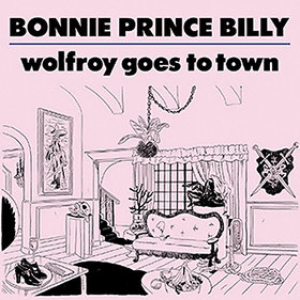New Tibet
Bonnie 'Prince' Billy Lyrics
Jump to: Overall Meaning ↴ Line by Line Meaning ↴
As men we lie and smile;
Noble enough until the firstborn child
Then, we shuck our guile.
You think we don′t fight.
Birds fight. Birds hate.
We fight, even as we reincarnate.
Upon you.
We are not what we should be
We just do what we do.
If we had power,
We would not fight for you
We would crush you.
We do what we do.
We have learned to continue to look at ourselves.
We leave fear of future,
Love for others,
And guilt untouched on our shelves.
The lyrics of "New Tibet" by Bonnie 'Prince' Billy appear to explore the contradictions and complexities of human behavior and relationships. The opening line, "As boys we fucked each other," suggests a sense of intimacy and connection among individuals, perhaps referring to a youthful exploration of sexuality or vulnerability.
However, as the song progresses, it delves into the transformation that occurs as these boys grow into men. They "lie and smile" and shed their innocence as they become fathers. The mention of "shucking guile" suggests that they discard their deceitful ways, possibly in order to embrace their responsibilities as parents.
The lyrics then touch upon the idea of conflict and aggression, comparing it to the natural instincts of birds. The line "We fight, even as we reincarnate" implies that conflict is an inherent part of human nature, persisting across generations. The plea to be freed carries a warning, suggesting that if released, the inherent messiness and flaws of humans will be unleashed upon others.
Furthermore, the lyrics suggest that humans have not achieved their ideal state. They acknowledge the capability for power and dominance, expressing that if they were given the opportunity, they would crush others rather than fight for them. This hints at the darker aspects of human nature and the potential for harm that comes with power.
The final lines of the song touch upon a sense of self-reflection and introspection. They imply that humans have learned to focus on themselves, disregarding the fear of the future, love for others, and feelings of guilt.
Overall, "New Tibet" seems to be a contemplation on the complexities of human relationships, the innate contradictions within individuals, and the darker aspects of human nature that persist despite efforts to improve.
Line by Line Meaning
As boys we fucked each other.
When we were young, we used to intimately explore our desires together.
As men we lie and smile;
As adults, we deceive and put on a facade of happiness.
Noble enough until the firstborn child
We appear honorable and respectable until we become fathers for the first time.
Then, we shuck our guile.
Afterwards, we discard our deceitful ways.
You think we don't fight.
You believe we are peaceful individuals.
Birds fight. Birds hate.
Just like birds, we engage in conflicts and hold animosity towards others.
We fight, even as we reincarnate.
We constantly engage in battles, even across multiple lifetimes.
Free us, and a mess of mess will come rolling down Upon you.
If you set us free, chaos and disorder will be inflicted upon you.
We are not what we should be
Our true nature falls short of what it should ideally be.
We just do what we do.
We simply act according to our instincts and tendencies.
If we had power, We would not fight for you
If we possessed authority, we would not support your cause.
We would crush you.
Instead, we would overpower and defeat you.
We do what we do.
Ultimately, we act in accordance with our true nature.
We have learned to continue to look at ourselves.
We have discovered the importance of self-reflection.
We leave fear of future, Love for others, And guilt untouched on our shelves.
We avoid dealing with our anxieties about the future, our capacity to love others, and our feelings of guilt.
Writer(s): Will Oldham
Contributed by Scarlett B. Suggest a correction in the comments below.
